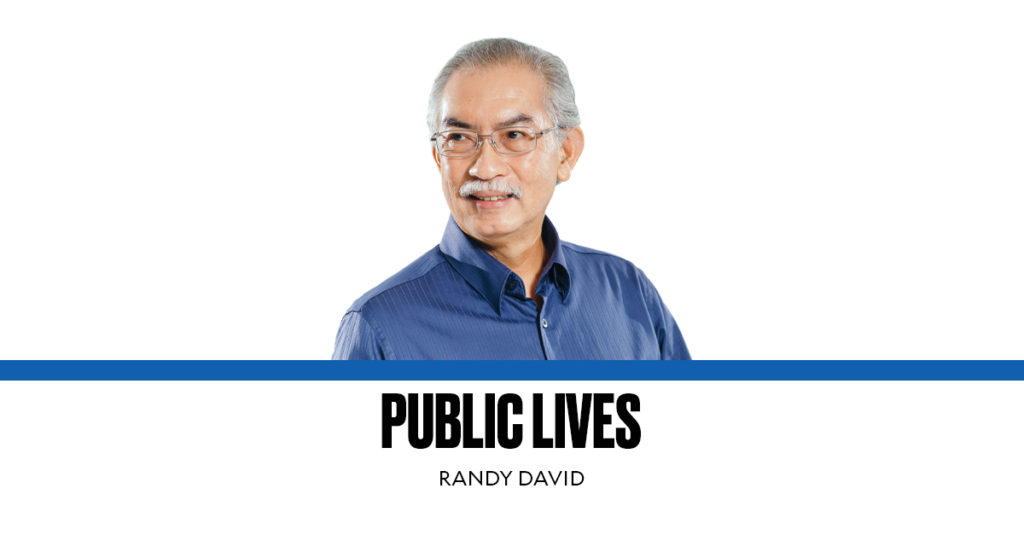Having once moderated a presidential debate myself, I was curious to watch the debates between US President Donald Trump and former vice president Joe Biden. I expected that Chris Wallace, the moderator of the first debate, would not have an easy time controlling Trump. I wanted to see how he would handle a 90-minute verbal slugfest between two protagonists with contrasting personalities.
US television talk shows are very different from ours in that guests and hosts all tend to talk at the same time. It’s a marvel to observe how a skillful host manages to seize the briefest pause in an almost unceasing flow of words to assert control of the discussion. I thought Wallace did very well. I don’t know how anyone else could have steered the discussion better under the circumstances.
From the get-go, Trump tried to show his dominance by repeatedly interrupting both Biden and Wallace. Not wanting to look like he was allowing himself to be browbeaten, Biden reciprocated with his own interjections. That became the pattern throughout the debate, which yielded neither clarity nor high-mindedness, only the worst display of incivility.
The topic that stood out in news reports the following day was the candidates’ response to the question whether they would denounce the white supremacist groups that have lately hogged the news. Biden was unequivocal in his condemnation of these groups. Trump tried to gain time by asking which groups exactly he was being asked to condemn. When the name “Proud Boys” was mentioned, he shrugged and said: “Well, stand down, and stand by.”
Amid this cacophony of voices zinging past one another, it is almost unbelievable that any topic could be taken up for any length of time. But one subject did: the coronavirus. It garnered a total time of 20 minutes, according to CBS News. And, for reasons that have nothing to do with the debate, much more in the days that followed.
Having just seen Trump leave the White House to board a helicopter that would take him to the Walter Reed Hospital after he and his wife tested positive for the coronavirus, I thought that no one could have invented anything more tragic in the Greek sense of the word. It was as though Aeschylus or Euripides had used the Trump-Biden debate as a prologue to foreground the deepest problem of contemporary American society: hubris.
Arrogance, loss of contact with reality, and overestimation of one’s capabilities—these are the traits associated with this Greek word. One would be hard-pressed to find anyone in America today who personifies it more dramatically than Donald Trump. The hubristic syndrome goes beyond the performative refusal to wear a protective mask in public during this pandemic. It touches on the very core of his followers’ persistent denial of the possibility that something so tiny as a virus could threaten anyone’s life, or bring down to its knees the world’s most powerful nation.
It would be unkind to suggest that the coronavirus could not have chosen a better host than the President of the United States to demonstrate the reality of its power. But, who can deny the significance of this moment? From here on, what this virus does to Trump’s 74-year-old body will be subject to the most intense and most encompassing scrutiny. Over the last nine months, the site of this observation had been the ICU of every affected country’s busiest hospital. Here, people recover, or die, almost incognito, the course of their illness appearing as no more than a set of statistics in the grim daily register of COVID-19.
In contrast, because of who he is and what he represents, Trump’s battle with the disease will be globally monitored. People of his age, like myself, will hopefully learn more of what this disease does to the body, how its onset interacts with existing conditions, and how the virus’ inherent complexity deviates from the abstract models in which it has been cast. As importantly, it may tell us how best to arrest its progress, or what to do to give the body an even chance to fight the disease.
Henceforth, nothing that happens to Trump or what his doctors do to him can be kept confidential. Every little sign of improvement will be announced, and every minute turn for the worse will be commented upon. This is one instance when any suspicious pause in the news about the President’s medical status will promptly be filled with speculation. It doesn’t help that during the presidency of Trump, mainstream media have cultivated a broad skepticism about everything that is issued from the White House or by the President himself.
That skepticism has its echoes in the US Congress. One month before Americans go to the polls to vote for the next president, the demand for full information about the President’s status is expected to intensify. A protocol that operationalizes the need for transparency concerning the American President’s health and capacity to govern was established in 1967 with the ratification of the 25th Amendment to the US Constitution. It will surely be brought up.
It wasn’t like that when Woodrow Wilson, the 28th president of the United States, caught the Spanish Influenza virus in April 1919, while attending the post-World War I peace talks in France. It was kept a secret. While he recovered from the illness, his biographers say he was never the same again. Six months after, he suffered a stroke that left him paralyzed and half-blind.
Because of advances in medical science, Trump may have a better chance of recovering from COVID-19. But no one is sure of the virus’ long-term effects.
public.lives@gmail.com
For more news about the novel coronavirus click here.
What you need to know about Coronavirus.
For more information on COVID-19, call the DOH Hotline: (02) 86517800 local 1149/1150.
The Inquirer Foundation supports our healthcare frontliners and is still accepting cash donations to be deposited at Banco de Oro (BDO) current account #007960018860 or donate through PayMaya using this link .
